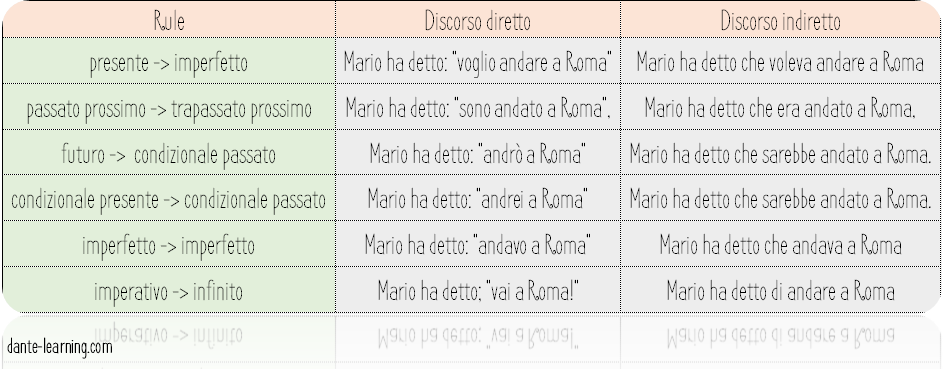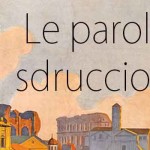If you want to report what someone says or thinks, you have two options: the direct or indirect speech.
-
Mario ha detto: “voglio andare a Roma”. – Mario said: “I want to go to Rome”.
-
Mario ha detto che voleva andare a Roma – Mario said he wanted to go to Rome.
In the first case – discorso diretto – the speaker quotes exactly what Mario said, without filters.
In the second case – discorso indiretto – the speaker reports what Mario said, changing all the references of time and context according to his point of view. “Mario ha detto…” places the action in the past. Therefore, the presente indicativo, becomes imperfetto in the indirect speech and the subjects moves from IO to LUI. Let’s see how the sequence of tenses changes,
The sequence of tenses
If we quote an event happening in the present, we can use the presente indicativo, “Mario dice”, and keep everything in the presente: “Mario dice che vuole andare a Roma”.
In most cases however, we quote what people said in the past. Mario ha detto…
Let’s see how the sequence of tenses change.

Again, the subject changes from the discorso diretto to the indiretto according to the point of view of the speaker. In this case, IO -> LUI, except for the last example TU -> IMPERSONALE because of the imperativo. In the first case, we can describe different scenarios depending on the action “voglio andare a Roma”. If Mario still wants to do that, we can say that “Mario ha detto che vuole andare a Roma”.
You can play around with different tenses and see how they change in the Italian indirect speech.
The point of view can also modify the place in space from which the action is observed, the ownership of objects and so on. Let’s take for example the sentences:
-
Mario ha detto: “vengo lì a Roma, a casa tua domani”.
Assuming that Mario said that to me, I can report what he said as follows:
-
Mario ha detto che veniva (or sarebbe venuto) qui a Roma, a casa mia il giorno dopo.
My perspective changes whatever Mario said. Even the time reference domani changes into il giorno dopo, the day after. Remember to change all the relevant elements in the new context of the Italian indirect speech.
Grazie per avere letto questo post, se ci sono domande fatemi sapere. Ciao.


